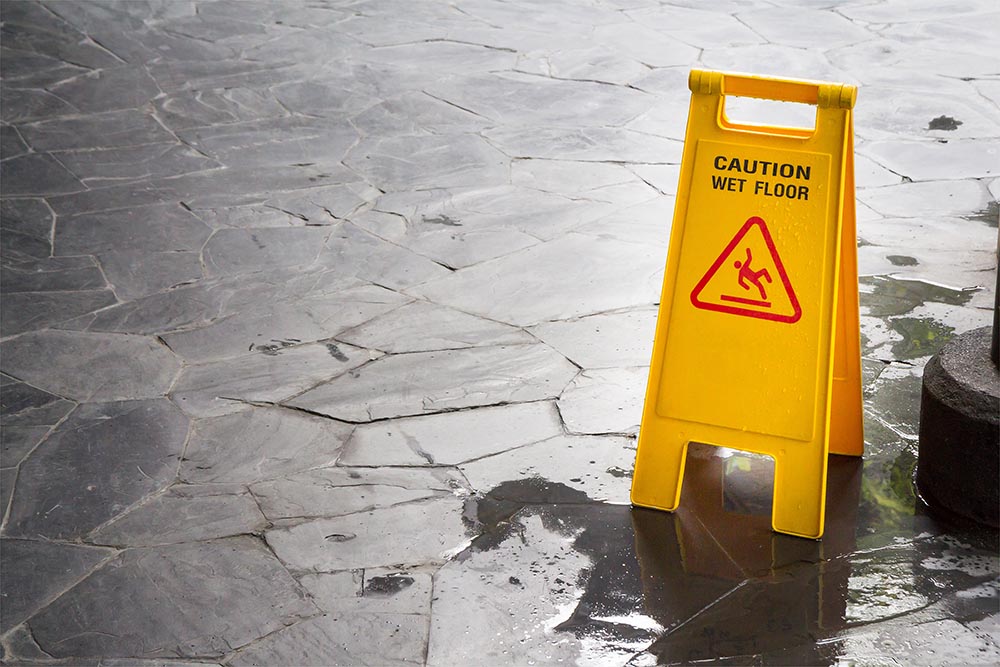Slip and fall accidents can be devastating and cause serious injuries such as traumatic brain injuries, broken or fractured bones, internal injuries, nerve damage, or even paralysis. If you were injured on someone else’s property due to their failure to remove or warn you regarding a dangerous or hazardous condition, you may have the right to receive compensation for your medical bills, lost wages, and pain and suffering.
Proving Your Slip and Fall Case
One-fifth of all falls result in some sort of severe injury to the victim. However, in order to receive compensation for your injuries from either a settlement offer from an insurance company, or from a claim in court, you will need to prove the following four criteria.
- Hazard Existed. You must prove that the property owner either knew, or should have known, that there was a hazardous or dangerous condition on their property.
- Failure to Warn or Remove. The property owner had a duty to ensure that their property was safe from any hazardous condition. If the property owner knew, or should have known, that there was a dangerous area or condition on their property, and they failed to warn guests or customers about this hazard, they breached their duty under the law.
- Causation. A victim must prove the hazardous or dangerous condition directly caused the slip and fall accident to occur, which then resulted in injuries.
- Damages. A victim must also prove that there were actual damages suffered. These damages can be physical, emotional, or financial. In many slip and fall cases, a victim will suffer all of these damages.
Definition of Hazard or Danger
There is no exact definition or legal set of criteria that makes a specific area or condition dangerous. However, most often, a common reasonable person standard is used. If a reasonable person would have considered the area or condition to be dangerous, then that is likely accepted by the court. Some of the common areas that are often seen in slip and fall cases include slippery sidewalks, grocery store aisles that have spilled products in them, stores with wet floors, hospitals, hotels, schools, parking lots with a substandard clearing of snow or ice, apartment buildings, uneven pavements, staircases, restaurants, and department stores.
Classification of Visitors
Property owners have different levels of responsibilities they owe to different types of visitors to their property.
- Invitee. If a business owner has patrons or customers in their business establishment, these guests are considered invitees and are owed a duty of care by the property owner to provide a safe property free from dangers or hazards.
- Licensee. If a person has guests over to their home or apartment with permission, these guests are considered licensees. These guests also have a duty of care from the property owner to provide a safe property.
- Trespasser. If a person trespasses illegally on a business owner or private property owner’s resident, the owner of that property does not have any requirement to provide notice of a hazardous condition or be liable for any damages that result from the trespasser becoming injured on their property.
Contact a Slip and Fall Accident Lawyer
If you were involved in a slip and fall accident either on a business property or a residential property in Kansas or Missouri, contact an experienced lawyer at Griggs Injury Law at (816) 474-0202 to ensure that you receive the compensation you deserve.


